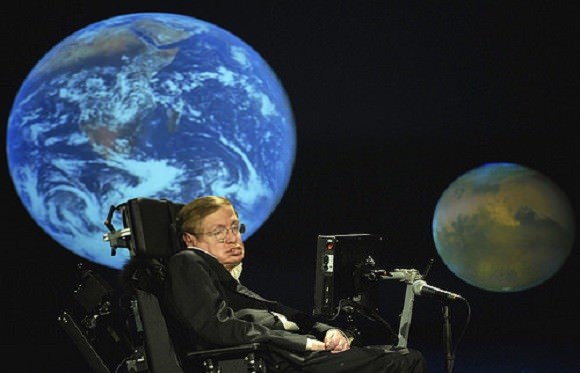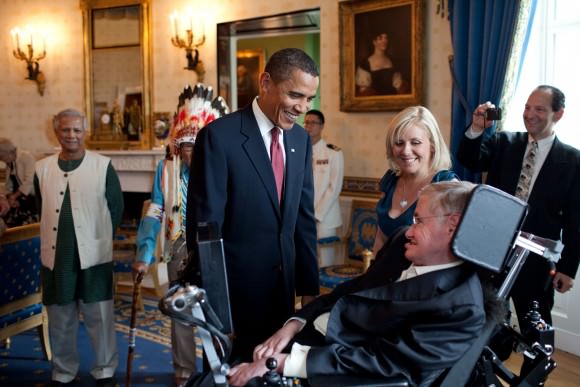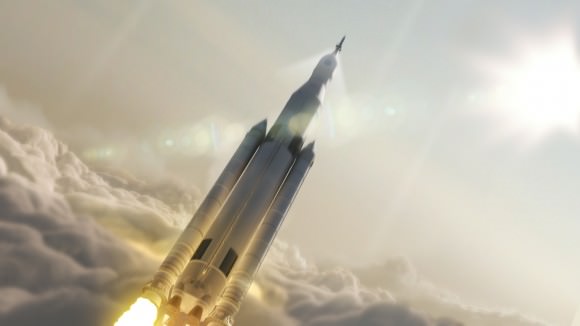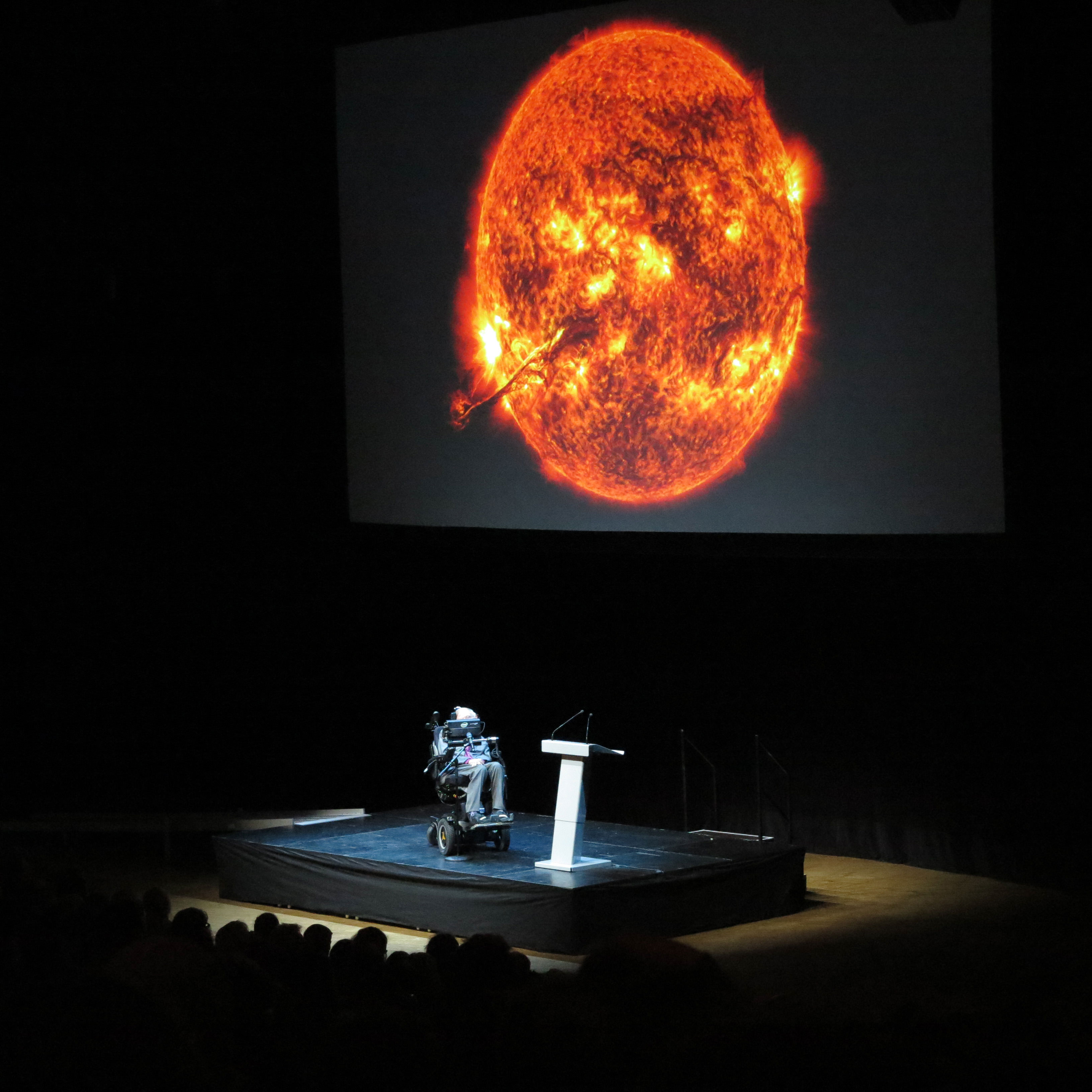It has been argued that the greatest reason our species should explore space and colonize other planets is so that a cataclysmic fate won’t be able to claim all of humanity. That is the driving force behind Elon Musk’s plan to colonize Mars. And it has certainly been the driving point behind Stephen Hawking’s belief that humanity should become an interplanetary-species.
And according to Hawking, becoming interplanetary is something of a time-sensitive issue. During a recent speech presented at the Oxford Union Society (Oxford University’s prestigious debating society) Hawking laid it out plainly for the audience. Humanity has 1000 years to locate and colonize new planets, he claimed, or we will likely go extinct.
For almost 200 years, the Oxford Union Society has been a forum for intellectual debate. In the past, it has also hosted such speakers as the Dalai Lama, Stephen Fry, Morgan Freeman, Richard Dawkins, and Buzz Aldrin. On this occasion, Hawking addressed a crowd of students and professors about space exploration and humanity’s future – two subjects he’s well versed in!

As Hawking made clear, humanity faces a number of existential threats, many of which are going to become a serious problem during the 21 century century. These include, but are not limited to, the threat of Climate Change, nuclear holocaust, terrorism, and the rise of artificial intelligence. The solution, Hawking argued, is to get into space and establish colonies as soon as possible.
As he was quoted as saying by the Christian Science Monitor, this will need to take place within the next 1000 years:
“Although the chance of a disaster to planet Earth in a given year may be quite low, it adds up over time, and becomes a near certainty in the next 1,000 or 10,000 years. By that time we should have spread out into space, and to other stars, so a disaster on Earth would not mean the end of the human race.”
This was not the first time Hawking has expressed concerns about the future. In January of 2015, Hawking joined Elon Musk and many other AI experts to pen the “Research Priorities for Robust and Beneficial Artificial Intelligence” – aka. the “Open Letter on Artificial Intelligence”. In this letter, he and the other signatories raised concerns about the short-term and long-term implications of AI, and urged that steps be taken to address them.

In addition, back in January of 2016, Hawking warned that humanity’s technological progress has the power to outstrip us. This occurred during his speech at the 2016 Leith Lectures, where Hawking spoke about black holes and why they are fascinating. During the Q&A period that followed, Hawking turned to the much more dour subject of whether or not humanity has a future. As he said at the time:
“We face a number of threats to our survival, from nuclear war, catastrophic global warming, and genetically engineered viruses. The number is likely to increase in the future, with the development of new technologies, and new ways things can go wrong. However, we will not establish self-sustaining colonies in space for at least the next hundred years, so we have to be very careful in this period. Most of the threats we face come from the progress we have made in science and technology. We are not going to stop making progress, or reverse it, so we have to recognize the dangers and control them. I am an optimist, and I believe we can.”
Similarly, Hawking indicated back in 2010 that humanity’s survival beyond the next century would require that we become a space-faring race. In an interview with Big Think, Hawking claimed the odds of humanity making it to the 22nd century was bad enough for a single-planet species, let alone the 31st:
“I believe that the long-term future of the human race must be in space. It will be difficult enough to avoid disaster on planet Earth in the next hundred years, let alone the next thousand, or million. The human race shouldn’t have all its eggs in one basket, or on one planet. Let’s hope we can avoid dropping the basket until we have spread the load.”

But before anyone gets all gloomy, it should be noted that between our plans to colonize Mars, and the success of the Kepler mission, we have found hundreds of planets that could serve as potential homes for humanity. But as Hawking has stated in the past, we will need at least 100 years to develop all the necessary technologies to build colonies on even the closest of these planets (Mars).
Beyond our survival as a species, Professor Hawking also advocates space travel as a way of improving humanity’s understanding of itself. This was made evident in a direct quote that the Union live-tweeted during the speech, in which he said: “We must continue exploring space in order to improve our knowledge of humanity. We must go beyond our humble planet.”
And as he has done so often before, Hawking ended his speech on an optimistic note. According to the Independent, he wrapped up his Oxford lecture with the following words of advice:
“Remember to look up at the stars and not down at your feet. Try to make sense of what you see, wonder about what makes the universe exist. Be curious. However difficult life may seem, there is always something you can do and succeed at. It matters that you don’t just give up.”
It seems we have our work cut out for us. Extra-terrestrial and/or extra-solar colonies by 3016… or bust!
Further Reading: Oxford Mail, CS Monitor, Independent

